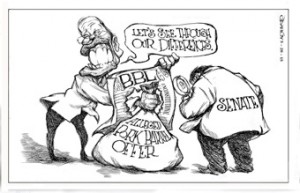This is a reaction to the statement of Secretary Kiko Pangilinan, presidential assistant on food security and agricultural modernization, that the dry spell only slightly affected palay production in this year’s February-April planting season. In other words, he is saying that there is sufficient stock of rice. Yet, why is it necessary to import rice? Pangilinan didn’t specify the volume of rice to be imported, but he is definite: there will be rice importation for buffer-stocking.
But shouldn’t even the buffer stock of rice come from the Philippines, not from other countries? Our continuing sourcing of rice from other countries is not a solution to the rice shortage. Revitalizing the local industry would be a better solution and government should prioritize it instead by focusing on strengthening and funding this thrust. This is the only solution to the rice shortage if we must address the high cost of rice, stop rice smuggling and, in the process, offer a solution to hunger.
How can we strengthen the local rice industry? By ensuring that every farmer controls and owns the land he tills (until today, most of our farmers are still tenants and leaseholders of the land they till); by subsidizing the farmers’ production inputs, including seeds; by developing the necessary agricultural infrastructure, especially for irrigation, so we will have more farm areas that we can use for palay production; by prioritizing the allocation of water to irrigation systems; and by making available to the farmers a sufficient number of post-harvest and credit facilities.
According to reports, this year, the government plans to import 500,000 metric tons of rice. In Cagayan Valley alone, they can harvest 1.6 million tons of palay. The problem is, the harvested palay is in the hands of the traders, while the hands of the National Food Authority are empty. That may be partly but significantly because before the Department of Budget and Management releases the funds that the NFA needs to buy palay, the harvest season is over.
For as long as the Aquino administration does not abandon its liberalization policies in agriculture, for as long as government and Cabinet officials are not honest, for as long as they treat their positions as a business venture rather than service, as long as corruption prevails, the problem of rice shortage that has been hounding our country will stay.
—CATHY T. ESTAVILLO,
spokesperson, Bantay Bigas,
bantaybigas@yahoo.com


